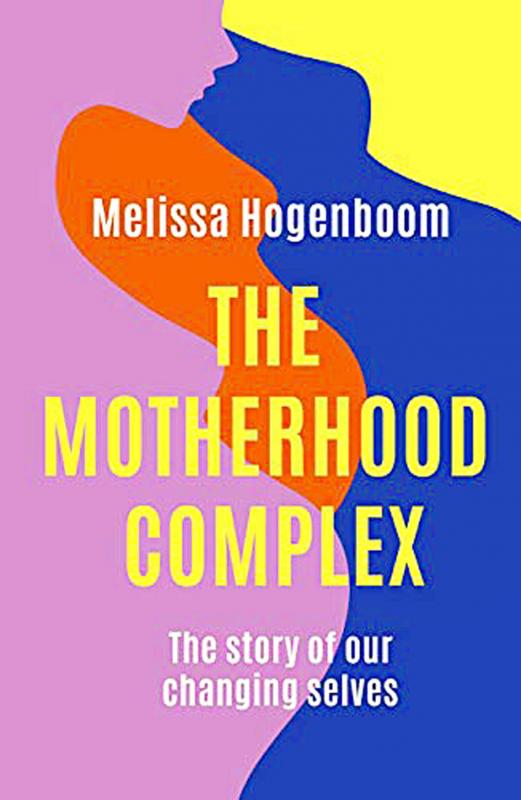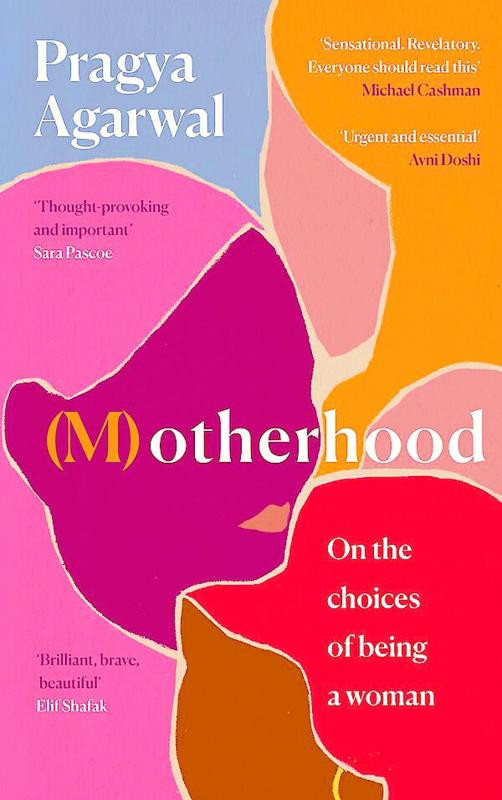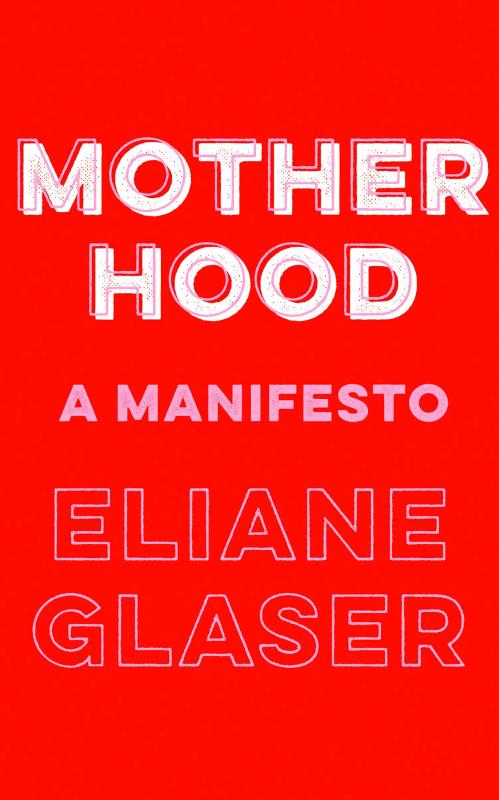The theme of the indignities of post-feminist motherhood is always fresh. And yet the past year seems to have rendered the wound more raw than ever. Eliane Glaser’s Motherhood: A Manifesto has already generated social media coverage galore for the assertions that “motherhood is the unfinished business of feminism” and “the cult of the perfect mother must end.”
Who would disagree with these statements? But these things need saying and loudly, especially when “the pandemic is amplifying bias against working mothers,” to quote a recent typical headline.
And yet what are the solutions on offer that haven’t already been proposed decades ago by, say, Betty Friedan or Simone de Beauvoir, both, happily, quoted here.

Glaser homes in on the awkward truths: “Modern motherhood somehow manages to demean women while simultaneously raising the stakes.” “For too long, the injustices of modern motherhood have been concealed by anxiety and guilt.” “… fathers’ participation has flat-lined…”
But is there much “manifesto” in Motherhood: A Manifesto (ie instruction rather than insight)? Arguably not. This is more exploration and truth-telling. But when it’s so well written and well argued, who cares?
This book opens with Glaser playing with her toddlers in the park. A passer-by comments that she’s doing “the most important job in the world.”

It rings hollow.
“Her words felt like compensation for actual status, or a warning against seeking it in the first place.”
Where, asks the author, is the public recognition? Or, indeed, any remuneration? Analyzing Mumsnet posts, feminist tomes, parenting bibles through the decades and her own experience, Glaser reaches the conclusion that the way we are being asked to mother “is not a credible way to live.”

Powerfully expressed throughout and a compelling, addictively easy read (while being meticulously researched and effortlessly intelligent), this is a breath of fresh air that blends personal observation with political analysis and proper investigative journalism. This will save you reading hundreds of books on motherhood and child-rearing. And is a damn sight more entertaining.
In (M)otherhood, behavioral scientist Pragya Agarwal wonders if a book questioning the parental self and society’s attitudes to that self needs to define itself either as memoir or as political writing.
“Does it really have to sit in a box?”
Here is proof that it really doesn’t: this is an exhilarating, genre-defying read. Unsurprisingly, coming from the author of Sway: Unravelling Unconscious Bias, Agarwal is especially concerned with issues of identity, which makes this a thoughtful, anthropological journey. What does it mean to want to be a mother? What will others assume about you if you choose that, and if you don’t? What do these assumptions tell us about who we are as a society?
She frequently wonders about the role of the judgmental words we use around female bodies. She is told she has an “incompetent” or “inhospitable” uterus. She writes movingly of the ambiguities of motherhood, secondary infertility (being unable to conceive after giving birth in the past), surrogacy and her personal experience of abortion as a single mother: “A contradiction: I was a mother, but I couldn’t be a mother. Not then.”
All these moments are seamlessly interwoven with statistics, quotes and scientific evidence to clever narrative effect: the personal and the universal aspects of motherhood are illuminated as interchangeable in a way that is reminiscent of Olivia Laing’s writing on loneliness or the body.
The science writer Angela Saini sums up (M)otherhood perfectly in her cover quote as “a step towards a literature that acknowledges the breadth and the variety of the parenting experience and its cultural meanings.”
The whole thing adds up to the most thoughtful, empathic and inspiring science of the self. (Not that I can see Waterstones adopting this as a shelf category. But perhaps it should.)
In The Motherhood Complex, Melissa Hogenboom delivers an upbeat, authoritative tirade on the contradiction between what we think motherhood is supposed to be like and what it is really like, starting with her own realization that despite her Dutch-influenced liberal upbringing she — like many of us — was pretty ignorant about the facts of her own biology. On the plus side, though, she has insight into a different parenting example: in Dutch mothering culture, although there is “a greater trend towards competitive and intensive mothering, parenting there still is more relaxed.”
Where Eliane Glaser is focused on social change and Pragya Agarwal is interested in the social self, Hogenboom unfurls a proper anatomy of motherhood, delving into the physical and emotional changes. An award-winning film-maker and mother of two, she takes herself as a vivid documentary case study, her observations on maternity leave policies and modern parenting tips (usually unhelpful, she notes) interspersed with her own diary entries and anecdotes about her children’s behavior and her reactions to them. Like Glaser, she is descriptive rather than prescriptive, gleefully listing all the hellish contradictory methods that are “recommended.”
“What we do know is that rigidly following parenting advice can be damaging.” This book is reassuring, warm and subtly challenging.
Overall this trio represents a side-eye question: “Haven’t we all had enough of trying so hard?” As Eliane Glaser points out, many of the current stereotypes of mothers “symbolize our failure to improve the experience of motherhood.”
See TV’s Motherland, books like Why Mummy Drinks and endless “hilarious” jokes about wine o’clock: “The only suggestion we can offer is to just drink through it.”
Hogenboom’s conclusion? We are so obsessed with being “perfect parents” that we set ourselves up for failure. Better to be “selfish” (actually, sensible) and leave children to their own devices more often. I’ll drink to that.
Publication Notes
The Motherhood Complex: The Story of Our Changing Selves
By Melissa Hogenboom
320 pages
Piatkus
Softcover: UK
(M)otherhood: On the Choices of Being a Woman
By Pragya Agarwal
331 pages
Canongate
Hardcover: UK
Motherhood: A Manifesto
By Eliane Glaser
289 pages
Fourth Estate
Kindle

On April 26, The Lancet published a letter from two doctors at Taichung-based China Medical University Hospital (CMUH) warning that “Taiwan’s Health Care System is on the Brink of Collapse.” The authors said that “Years of policy inaction and mismanagement of resources have led to the National Health Insurance system operating under unsustainable conditions.” The pushback was immediate. Errors in the paper were quickly identified and publicized, to discredit the authors (the hospital apologized). CNA reported that CMUH said the letter described Taiwan in 2021 as having 62 nurses per 10,000 people, when the correct number was 78 nurses per 10,000

As Donald Trump’s executive order in March led to the shuttering of Voice of America (VOA) — the global broadcaster whose roots date back to the fight against Nazi propaganda — he quickly attracted support from figures not used to aligning themselves with any US administration. Trump had ordered the US Agency for Global Media, the federal agency that funds VOA and other groups promoting independent journalism overseas, to be “eliminated to the maximum extent consistent with applicable law.” The decision suddenly halted programming in 49 languages to more than 425 million people. In Moscow, Margarita Simonyan, the hardline editor-in-chief of the

Six weeks before I embarked on a research mission in Kyoto, I was sitting alone at a bar counter in Melbourne. Next to me, a woman was bragging loudly to a friend: She, too, was heading to Kyoto, I quickly discerned. Except her trip was in four months. And she’d just pulled an all-nighter booking restaurant reservations. As I snooped on the conversation, I broke out in a sweat, panicking because I’d yet to secure a single table. Then I remembered: Eating well in Japan is absolutely not something to lose sleep over. It’s true that the best-known institutions book up faster

Though the total area of Penghu isn’t that large, exploring all of it — including its numerous outlying islands — could easily take a couple of weeks. The most remote township accessible by road from Magong City (馬公市) is Siyu (西嶼鄉), and this place alone deserves at least two days to fully appreciate. Whether it’s beaches, architecture, museums, snacks, sunrises or sunsets that attract you, Siyu has something for everyone. Though only 5km from Magong by sea, no ferry service currently exists and it must be reached by a long circuitous route around the main island of Penghu, with the